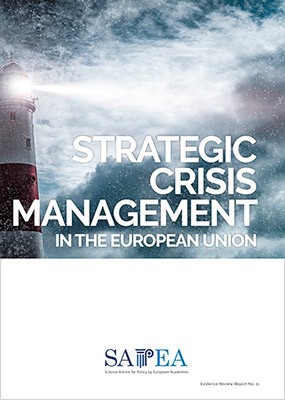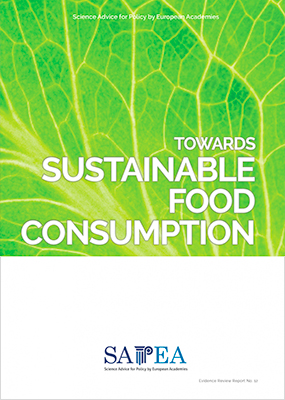28 Juin TOWARDS SUSTAINABLE FOOD CONSUMPTION
For Europe to achieve its health and sustainability goals, the way we produce and consume food has to change.
For Europe to achieve its health and sustainability goals, the way we produce and consume food has to change. Our current food system has a major impact on the environment, and poor quality diets are also linked to risk of disease, obesity and overweight — which affects around 60% of adults and 30% of children in European countries.
To address these issues, our diets need to shift towards more plant-based ingredients, rich in vegetables, fruits, wholegrains and pulses. Our diets should be limited in red meat, processed meat, salt, added sugar, and high-fat animal products, while fish and seafood should be sourced from sustainably managed stocks.
Until now, the main policy focus in the EU has been on providing consumers with more information. But this is not enough. People choose food not just through rational reflection, but also based on many other factors: food availability, habits and routines, emotional and impulsive reactions, and their financial and social situation.
So we should consider ways to unburden the consumer and make sustainable, healthy food an easy and affordable choice. That will require a mix of incentives, information and binding policies governing all aspects of food production and distribution. Policies should address the whole food environment, anywhere where food is obtained, eaten, and discussed. The EU’s food environment is diverse, including shops, restaurants, homes, schools and workplaces, as well as informal settings such as home-grown food. Increasingly, it also includes digital media.
The evidence points in particular to five key elements:
- Pricing: There is clear evidence that direct measures are effective. This includes sugar taxes, meat taxes, and pricing products according to their environmental impacts, as well as lower taxes on healthy and sustainable alternatives. These policies must be delivered in a way that is fair, especially to people from disadvantaged backgrounds, for instance by returning tax proceeds to vulnerable citizens.
- Availability and visibility: Healthy and sustainable food options are more frequently chosen if they are displayed in prominent places. The advertising of foods which are unhealthy or unsustainable if consumed regularly should be restricted. Voluntary codes of conduct in this area have not been effective.
- Composition: Reducing unhealthy fat, sugar and salt content, and adding more plant-based alternatives, can be helpful — but only if these measures are mandatory and comprehensive. The evidence shows that past voluntary agreements have had limited effect.
- Labelling: Labelling foods to show their health impacts has a low to moderate effect. There are now many such schemes, with more appearing all the time. Since the effectiveness of labels depends on consumer trust, we need clear, coherent standards to underpin them.
- Social environment: Peer and social influence has been shown to be effective in improving healthy eating. Digital technologies offer further possibilities, but also pose huge risks of stimulating unhealthy and unsustainable consumption, for example through industry marketing strategies.
Some of these policies imply longer-term and more transformational changes than others – but the need to begin making changes is urgent. Achieving this is not just about implementing new policies, but also removing or changing existing policies that divert from our goals, such as subsidies for unhealthy or unsustainable food production.
It will be critical to create an environment that allows all stakeholders to work towards the goal of healthy and sustainable food, following fair rules. This approach may also help to overcome opposition from those who profit from the current system, including some large private sector organisations with powerful voices.
If we involve everyone, we can dramatically improve our diets and make the European food system more sustainable.





Sorry, the comment form is closed at this time.